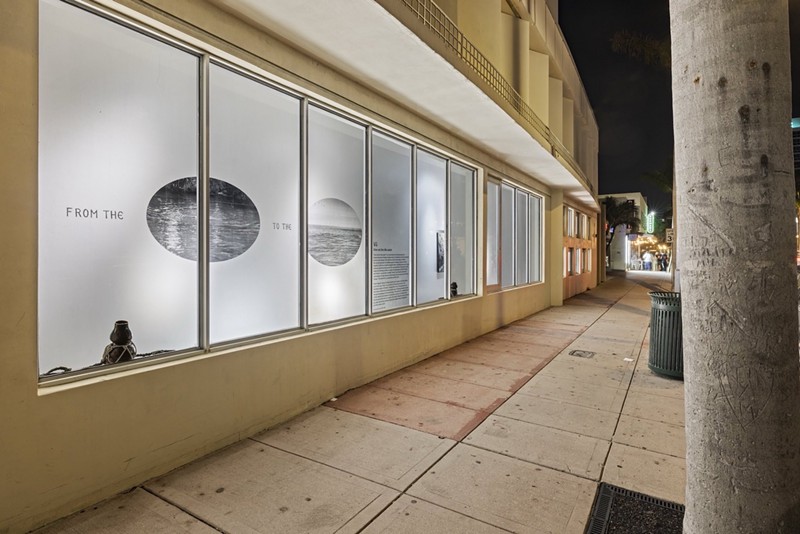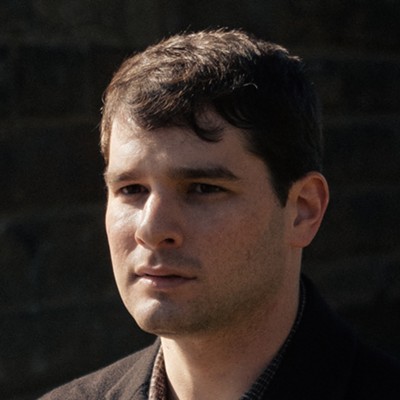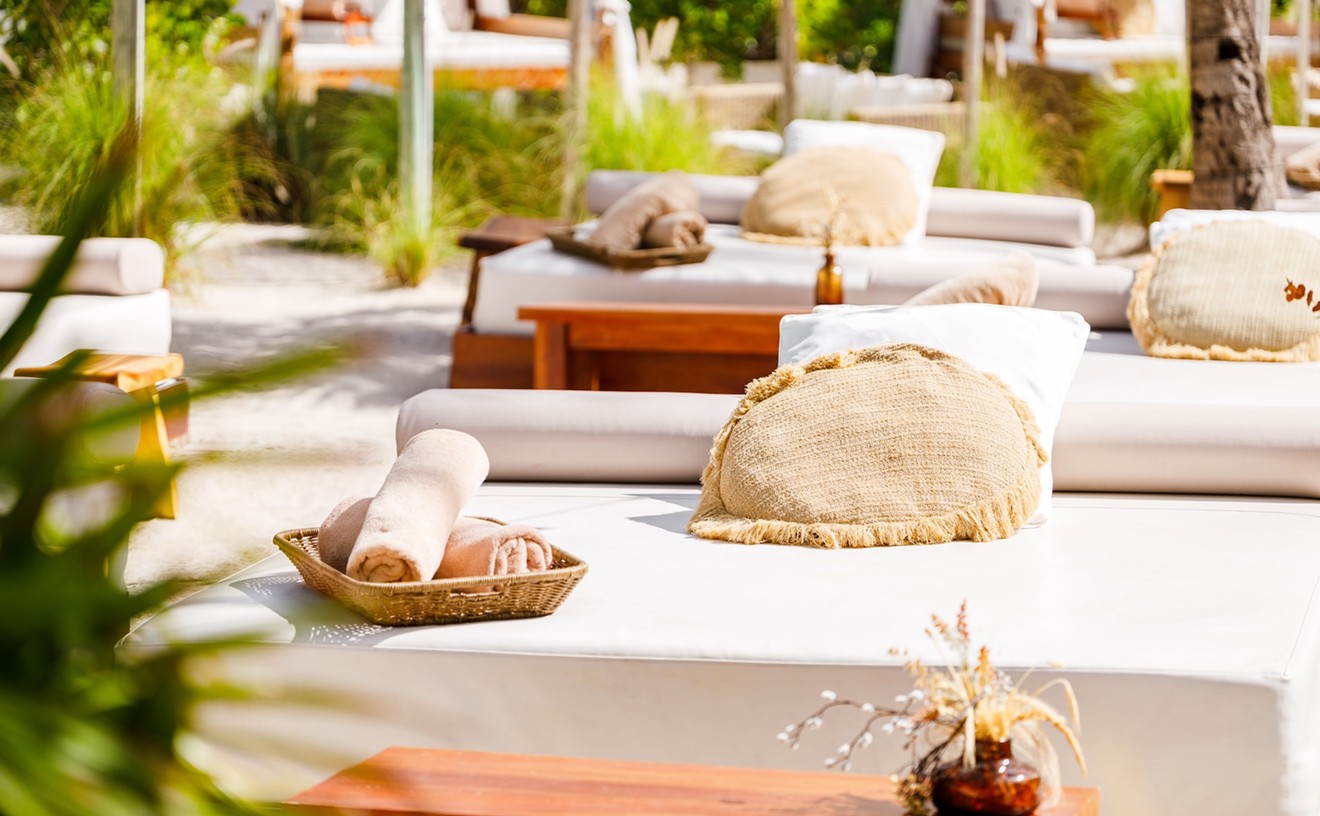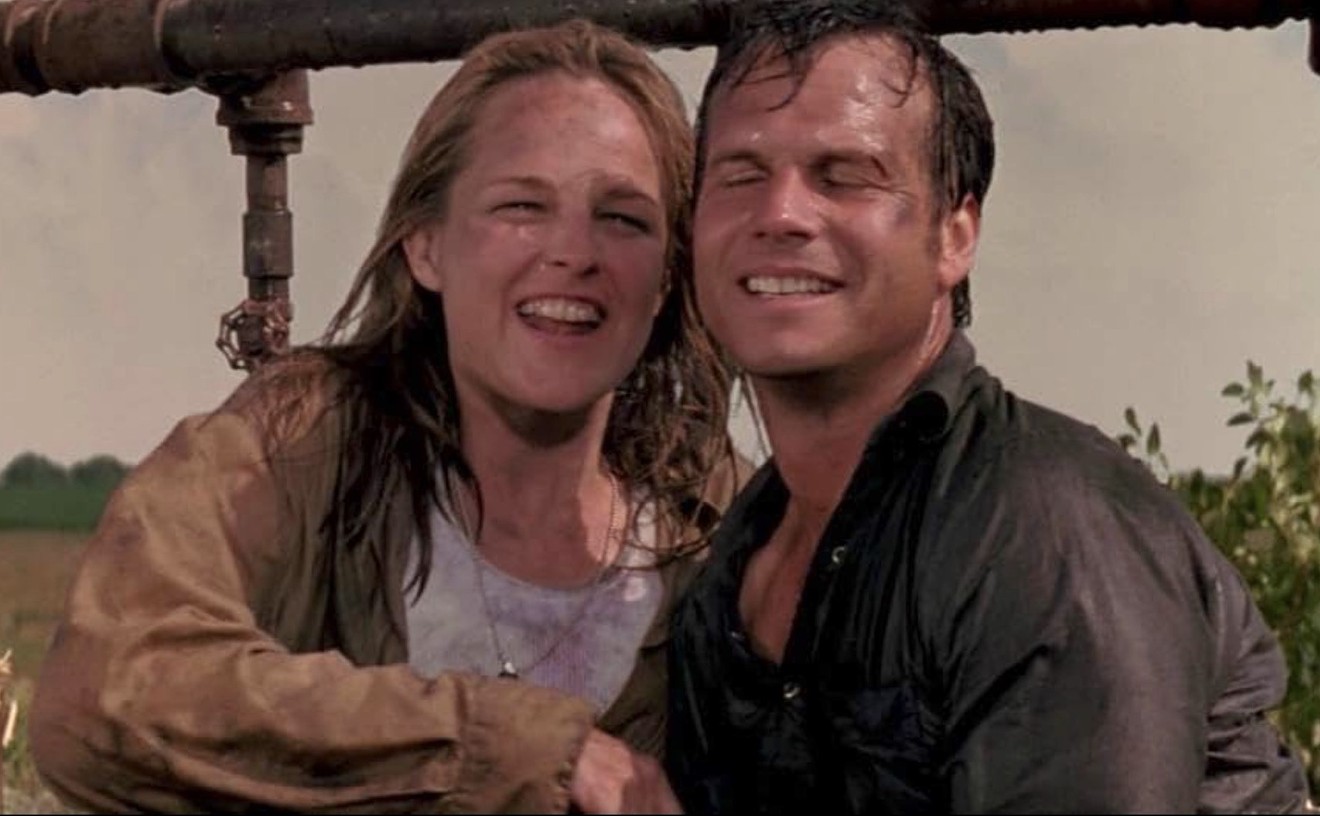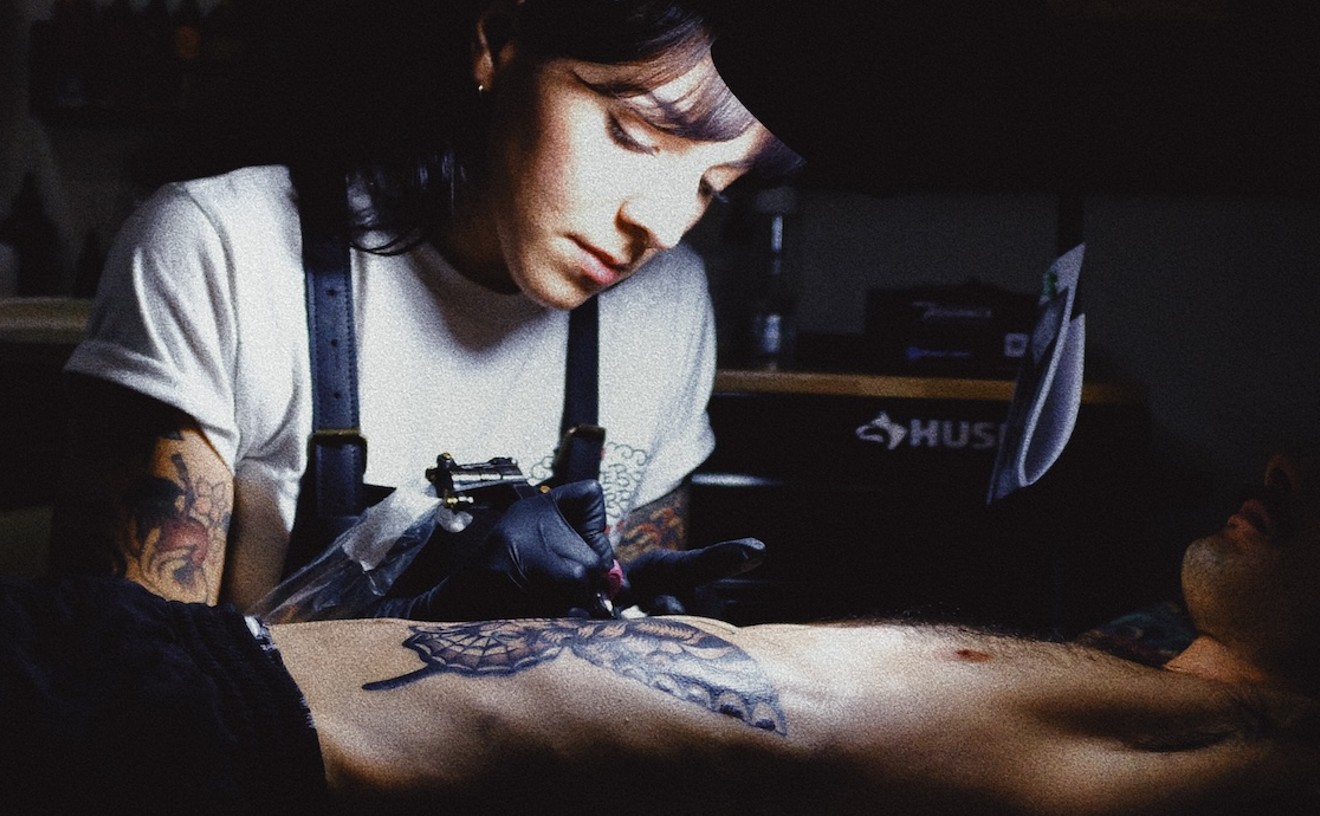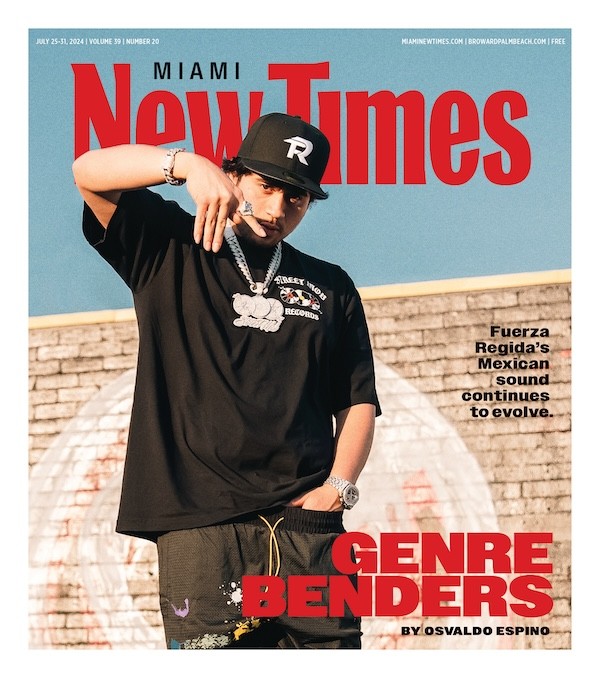"We want all our stakeholders to know that we are taking this matter seriously," the board said in its statement, which was shared on Oolite's website and social media channels and emailed to its newsletter subscribers. "Our new interim CEO Maggy Cuesta has met with our staff and resident artists, shared answers to their questions about what happened, why the artwork was removed, and the role of the board in this process."
A group of Oolite artists who'd vocally opposed the removal of the work last month isn't ready to move on.
In a statement posted to Instagram this morning, the group called for a complete boycott of the institution.
"Senior leadership [at] Oolite Arts wants things to return to business as usual, but we refuse," stated the group, posting under a recently created Instagram account called Miami Arts Accountability. "As the lifeblood of the organization, we the artists withdraw our participation in any and all programs including exhibitions, lectures, screenings, or open studios, withholding Oolite Arts' access to our cultural capital. We call on the public to join us."
The group pledged to maintain its boycott until Oolite agrees to an "open and non-hierarchical dialogue with all resident Oolite artists and the wider artistic community, including Oolite alumni and past grantees" over what it contends was an act of censorship. For starters, it's asking Oolite to respond to a May 9 open letter signed by more than 700 Miami artists and creatives who demanded the resignation of Oolite board chair Marie Elena Angulo, an apology to Vũ and compensation for the removal of their work, and a town-hall meeting to address the conflict between the board and Oolite's staff, resident artists, and alumni.
"This dialogue will include how a complete restructuring of the organization's board can ensure Miami artists and their needs are centered," Miami Arts Accountability states.
An Oolite Arts representative declined New Times' request for comment.
Too Little, Too Late?
Installed on March 27, How we live like water was an interpretation of "From the river to the sea," a phrase that has become a point of controversy in the ongoing Israel-Hamas war in Gaza. On May 3, the artwork was removed on Angulo's orders, purportedly in response to complaints from "a group of Jewish South Beach residents," according to leaked emails obtained by New Times.Some Oolite artists and others in the local creative community were taken aback by what they viewed as censorship on the part of an organization that has long served as a crucial supplier of studio space and funding. Oolite resident artists collectively canceled a show of their work scheduled to open on May 8. An open letter, which included a statement from Vũ regarding the alleged censorship, was circulated, calling for accountability, transparency from the board, and the resignation of board chair Marie Elena Angulo. A separate internal email authored by six Oolite staffers was sent to the board, listing similar demands and accusing its members of abusing their power.
A representative for Oolite says interim CEO Maggy Cuesta met with the organization's resident artists over Zoom on May 21 and sent them an email answering their questions on May 30. In answering the residents' questions, Cuesta promised a timeline of the events that led to Vũ's work being removed. It was also noted that the board had approved an earlier statement issued to the press, including New Times, when it met on May 9.
Tuesday's statement largely reinforces the board's original May 9 statement, with similar language used in both: "The Oolite Arts Board of Trustees deeply regrets that the removal of Vũ Hoàng Khánh Nguyên's artwork has offended some in our community, and that its contents offended others in our community. We believe strongly in the right to artistic expression, but the particular phrase highlighted in this piece is perceived by many as a literal call for violence against them."
The June statement also once again points out that the contract between Walgreens and Oolite "requires that any art displayed not be controversial" and that the organization is conducting a "policy review" to "ensure that artists we work with have clear understanding of our exhibition guidelines."
Alongside the statement were links to a Miami Herald article on the situation at Oolite, as well as a piece published by the newspaper's editorial board headlined, "Jewish people had every right to be offended by Miami Beach artwork. It had to come down."
The board's statement didn't seem to satisfy many of those involved in Miami's art scene since it didn't address the demands made in last month's open letter. Multiple current and former Oolite residents and artists left comments on the Instagram post disagreeing, criticizing the board's lack of response.
"You really waited a whole month to post...this," wrote Monica Sorelle, director of the film Mountains and a former Oolite resident. "It's sad to see how poorly you think of the community you claim to support. When is Marie Elena Angulo and the board's executive committee resigning?"
"This statement is a slap in the face of the artists community you claim to serve," wrote Misael Soto, another former resident and a member of Miami Arts Accountability. "You have refused to acknowledge the letters written by the artist you censored and the broader artistic community (now with over 700 signatures). You claim here to have answered questions raised by Oolite Residents, but this is a flat out lie. You do not serve us and we will hold you to task."
According to Vũ, their piece was never intended as a call for violence. Vũ, who is queer and uses they/he pronouns, tells New Times their original intention with the artwork was to discuss the climate crisis, but due to the ongoing violence in Gaza, they decided to change its focus.
"When I was at the space in March to install, I felt like I had all this space to say something. I wanted to make a piece for Palestine, but I wanted it not to be super overt," they say. "[Oolite] didn't ask for too many specifics. I was under the impression that I had artistic liberty."
Vũ, who is a member of Miami Arts Accountability, says the artwork, which incorporates the slogan, was meant as a "call for peace and resistance" and an exploration of the theme of water. "Water can be supportive and natural; it can hold us through times of change," they say. "But it can also be a force for change."
Vũ says they received an "outpouring of support" after the piece was taken down. They also categorically deny that their use of the phrase was meant to target anyone and say they don't plan on working with Oolite or accepting funding from them in the future.
"I'm ready to burn that bridge," they say.
Who's in Control?
The dozen-plus members of Miami Arts Accountability (MAA) see the ongoing conflict as a battle for the soul of a crucial, artist-run organization. MAA member and current Oolite resident Chire "VantaBlack" Regans says the organization's leadership is to blame for the divide."All of this hurt and confusion could have been avoided a month ago if there was a town hall or an open forum organized so people could get on one page about what happened, how they feel," Regans says. Regans, who won an Ellies Creator Award grant last year and a Social Justice Award in 2020 from Oolite, says Cuesta, a former New World School of the Arts dean, met with her and other artists but failed to follow up on the group's concerns.
MAA members feel artists are given little say in matters at Oolite. Only two of Oolite's current board members are artists (Germane Barnes and Edouard Duval-Carrié). Board chair Marie Elena Angulo is an attorney at the law firm White & Case. Vice chair Alessandro Ferretti is a real estate developer. Kim Kovel, a board chair emerita whom the organization lists as its treasurer, is the editor and publisher of Kovels Antique Trader, an industry publication. Board secretary Reagan Pace is an attorney and lobbyist who appears to have moved to Dallas. Other board members work in real estate, investment, and corporate news media.
"This is a testament to the fact that the entire board at Oolite has no idea about what the arts community feels and what they care about and think," Regans says. "I think they thought if they could appease the residents of Miami Beach, then this would go away. But they didn't understand that this involves the arts community at large, not just the artists currently in the building."
Regans says she will no longer participate in Oolite studio visits, exhibitions, talks, or other programming and will deny the organization the right to use her art and likeness in its marketing materials.
Back to Beginnings
Oolite was founded in 1984 as ArtCenter/South Florida by artist Ellie Schneiderman. In addition to hosting exhibitions, studios for resident artists, and art classes, the nonprofit wields significant financial might, much of which stems from the sale of its former headquarters at 200 Lincoln Rd. in 2014 for $88 million. Oolite is building a new $30 million headquarters in Little Haiti, designed by the Spanish firm Barozzi Veiga."They attempted to hire a 'starchitect' to create a new home in a manner that didn't consult with artists, contributes to gentrification in Little Haiti, and is not what the community needs," says Soto. "Why do we need a central space for $30 million when you're serving artists in an entire county? Why not buy up empty buildings for much less money and give space to the artists you purportedly serve?"
Oolite gives up to $500,000 annually to artists as part of its Ellies Visual Arts Awards, named after Schneiderman. Soto says that sum pales in comparison to its capital resources.
"I believe the artist community is so catalyzed because Oolite made its money through the creation of real estate wealth by a generation of artists, and artists should control that wealth. I think we got bamboozled into thinking we needed a bunch of lawyers and rich people to control that wealth. Oolite already has a ton of cash. It doesn't need board members to sustain itself."
"Artists are becoming aware of what type of organization this has become," Regans adds. "It's the antithesis of the intent of Ellie Schneiderman."

